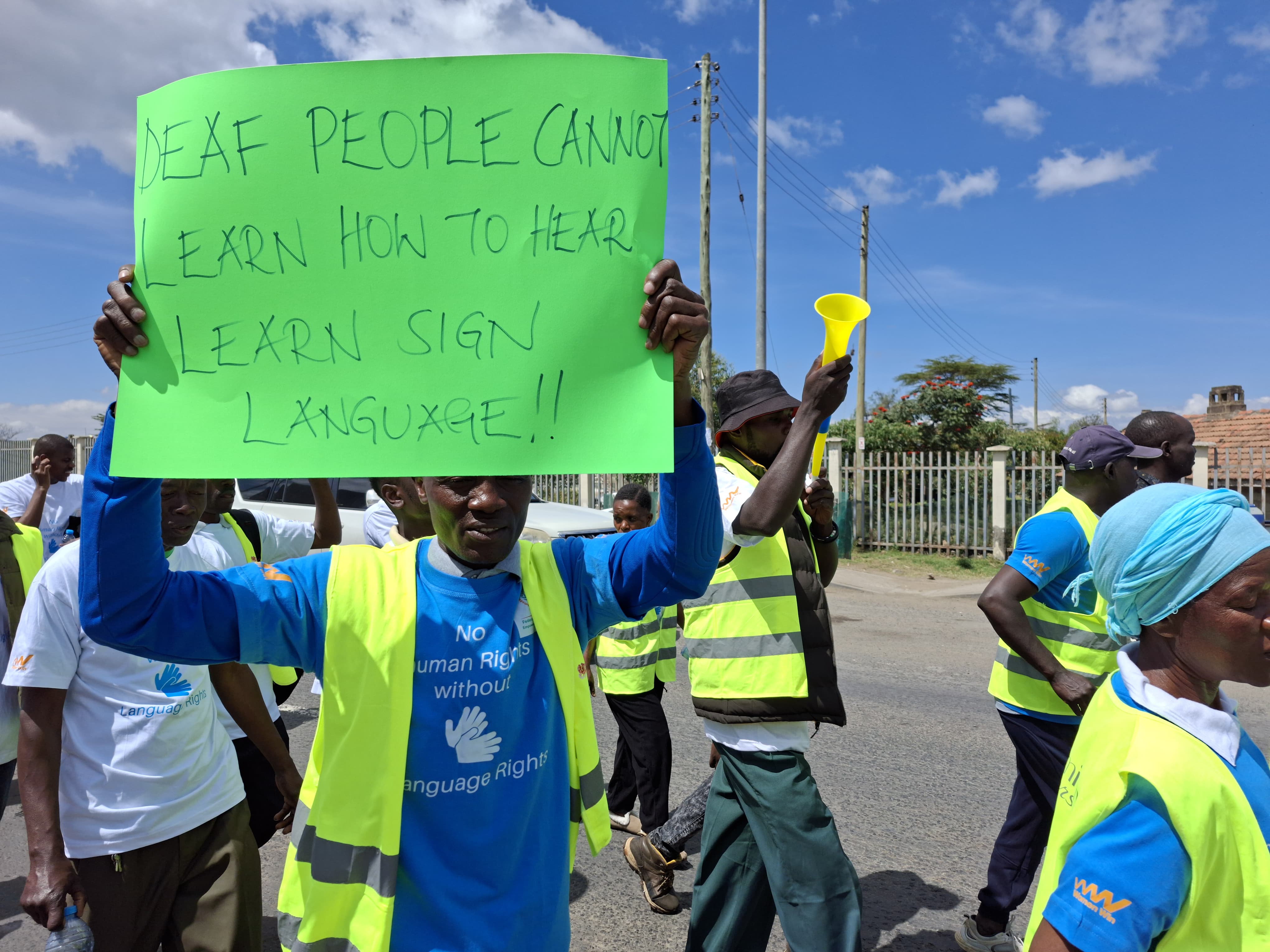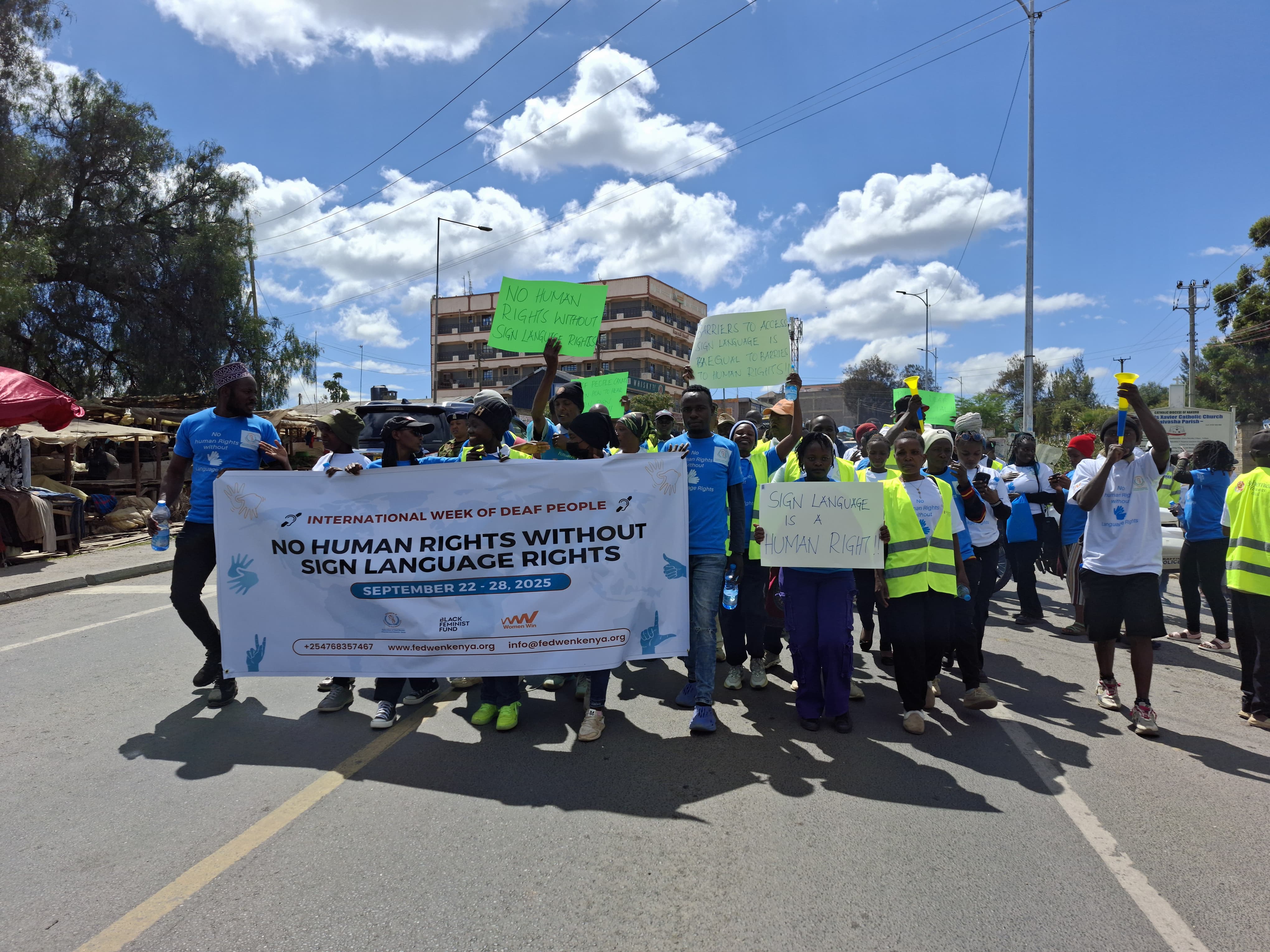 A participant carries the message of inclusion during the International Day of Sign Languages procession in Naivasha/HANDOUT
A participant carries the message of inclusion during the International Day of Sign Languages procession in Naivasha/HANDOUTKenya joined the rest of the world in celebrating the International Day of Sign Languages on September 23, with vibrant activities that brought together deaf people, allies, and advocates in a powerful show of solidarity.
The celebrations were marked with pomp and colour, reflecting both pride in deaf culture and an urgent call to address the barriers that still prevent full inclusion.
Participants highlighted that sign language is not merely a communication tool but also a cultural and linguistic identity that must be protected and promoted to achieve true equality.
“Inclusion is something we must practice daily. I have witnessed firsthand the challenges Deaf people face due to social exclusion and stigma. My team and I are committed to ensuring that no one is left behind, starting with our work here and extending to the wider community,” said Maina Kabati, a chief in Naivasha, during the event in his area.
Kabati noted that his office is working with local leaders and organisations to raise awareness, fight stigma, and make public services more accessible for Deaf people.

This year’s observance carried the theme “No Human Rights without Sign Language Rights,” underscoring the reality that without recognition of sign languages, the promise of equality for Deaf people remains elusive.
The International Day of Sign Languages forms part of the International Week of Deaf People, an initiative led by the World Federation of the Deaf.
Globally, more than 70 million Deaf people use over 300 distinct sign languages, each with its own history, culture, and richness.
Despite this diversity, many Deaf individuals continue to face exclusion due to inadequate recognition and support for their languages.
Kenya has made strides in this area by formally recognising Kenya Sign Language (KSL). However, gaps persist in implementation and access.
Qualified interpreters remain scarce, schools are often ill-equipped to provide quality education in KSL, and health facilities frequently lack the capacity to serve Deaf patients effectively.
Organisations such as the Federation of Deaf Women Empowerment Network (FEDWEN) continue to play a key role in pushing for visibility, empowerment, and inclusion of deaf women and youth.
Through advocacy and community initiatives, groups like FEDWEN are showing that promoting sign language rights is about more than communication—it is about breaking cycles of inequality and ensuring access to education, health, and justice.
As Kenya marked the day, the message was clear: true inclusion will only be possible when sign languages are fully embraced, protected, and promoted as fundamental to human rights.
















